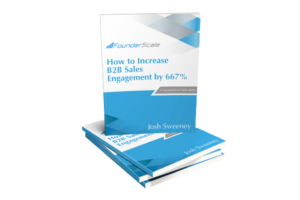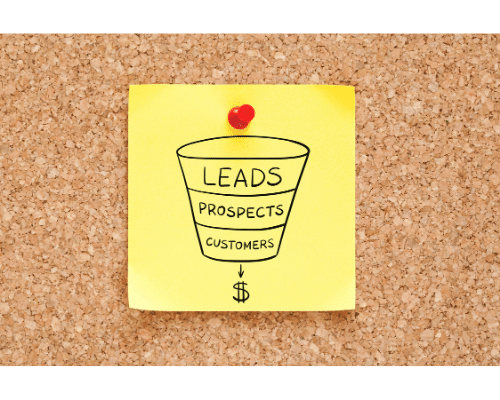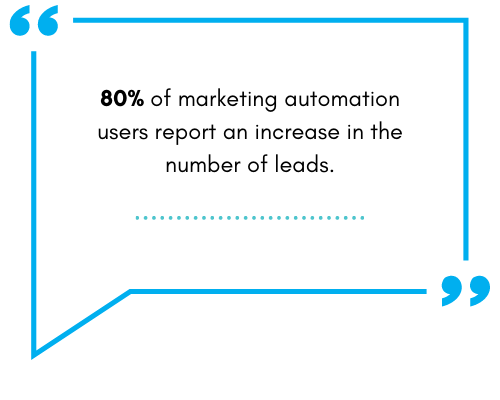More than 75% of companies are using marketing automation. Two-thirds say it has been an effective tool for lead generation and conversions.
It’s also growing in use. Despite a drop in marketing spending overall in 2020 due to COVID concerns, spending on marketing automation continued to increase. Marketing automation is currently a $15.6 billion market and is expected to expand by another 60% between now and 2023.
What is Marketing Automation?
Marketing automation helps simplify marketing and sales engagement by automating much of the process. The goal is to generate more leads, nurture prospects, and deliver personalized experiences to prospects and customers throughout the customer journey.
Depending on interactions, marketing automation can trigger content designed to drive prospects forward in the sale funnel when they meet certain criteria, including:
- Email campaigns
- Landing pages
- Content marketing
- Retargeting ads
- Responsive website design
- Social media posts/engagement
- Messaging
- Brand promotion
- Lead nurturing
Lists can be segmented based on predefined criteria, personas, or past performance against KPIs.
Why It Works
A lot of effort, time, and money is wasted trying to market to people who may not be interested in your company, products, or services. Marketing automation allows you to narrow your focus to those with an interest. It also helps you to identify the stage of the customer journey they’re in and deliver relevant content to move them to the next stage.
It also helps generate leads and deliver more high-value leads based on engagement.
When you’ve got marketing automation dialed in, you can expect to see:
- More leads going into your sales funnel
- Better qualified leads
- More conversions
Organizations that use marketing automation to nurture prospects can see amazing results, such as a 451% increase in qualified leads. Think about what that could do for your business!
Marketing Automation Generates a Better ROI
You should also see a better ROI for your overall marketing spend because you’re spending time targeting the right B2B buyers. 80% of marketing automation users report an increase in the number of leads. 77% report higher conversion rates.
It’s also highly scalable. Whether you’re nurturing a dozen leads or thousands, marketing automation can handle the volume efficiently without generating additional costs.
Marketing Analytics: Find Out What’s Working
Another huge advantage to marketing automation is it helps you answer one of the most important marketing questions you have: What’s working?
Let’s be honest. Not everything marketers do works. A lot of money has been spent on things that just fall flat. One of the most important things you can do is figure out the things that do work and do more of them. The things that don’t work? Stop doing them. While it sounds simple, just think about all the companies that spent money on Superbowl ads that are no longer in business.
Marketing automation tracks everything you do and tracks the entire customer journey. It can show you which piece of content leads to more frequent conversions and which things are duds. You can A/B test just about everything from email subject lines to ad copy to landing pages to see which perform the best and optimize your customer journey.
What Marketing Automation Isn’t
Marketing automation isn’t a set it and forget it marketing strategy. Not only does it need constant feeding, but it also needs experienced people to set it up and optimize your results. The most effective marketing automation campaigns are constantly evolving over time, adding new content, and finding new vectors to attract and nurture leads.
For example, let’s say you’ve posted content that generates a response indicating a solid prospect. Automation can only go so far. At the right time, your sales team needs to take over and bring it home. What automation can do is nurture that prospect until they demonstrate the right level of engagement. You can set up triggers within the system, based on lead scoring, that let you know when someone has become a sales-qualified lead (SQL) so that your sales reps don’t waste time with low-quality leads.
There’s also a fine line between hitting someone with the right amount of content and frustrating prospects with too much. It takes experience to walk right up to that line without crossing over into spam territory.
FounderScale Increases Sales with Marketing Automation
FounderScale helps founder-led B2B businesses increase sales by improving the marketing automation process with a comprehensive approach to pipeline management. As a HubSpot solution partner, we help businesses maximize their ROI. As a sales-first B2B agency, we can reduce your burden, help you scale, and create a sales-engine that provides sustainable growth.
Contact FounderScale today and let us help you grow your business.
How to Increase B2B Sales Engagement by 667%

Read our new mini-book to learn real-world strategies to boost sales engagement by 667%.






